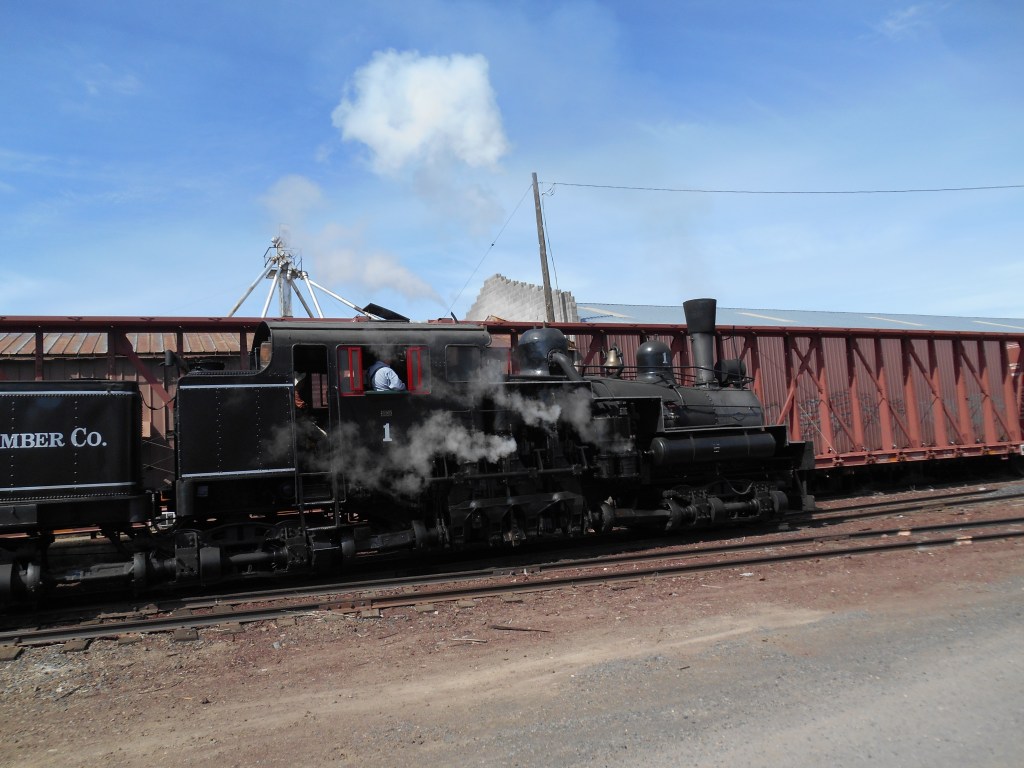Prineville steam locomotive could be moving to Portland
Published 12:30 pm Tuesday, August 9, 2022

- SHAY #2.jpg
The Oregon Historical Society is seeking a new home for a 1920s industrial steam engine based in Prineville.
The Oregon Rail Heritage Center in Portland, a nonprofit working museum, is under consideration by the Oregon Historical Society to become the new owner of the Mount Emily Shay, a logging locomotive built in the 1920s that has been operating out of Prineville for 30 years. Prineville can no longer afford it, however, and has asked the state historical society to find it a new home.
Trending
“The steam engine, in the last four or five years, has been mothballed and nobody really gets to see it. It’s just been parked in a shed. It just doesn’t do it justice just having it parked. It’s a wonderful item, an historical artifact just not being utilized,” Prineville Railway Operations Manager Matt Wiederholt.
“We would be thrilled to have the Mount Emily Shay. We have the resources and volunteers to restore and operate it. Some of our volunteers have even worked on it in the past,” said the rail museum’s public affairs director Renee Devereux.
Two other nonprofit organizations have also applied for the locomotive, but OHS won’t reveal who they are without their permission. Whoever is approved would become its new owner. The decision is scheduled to be made by Sept. 1.
The rail center near OMSI has a large facility and a dedicated crew of volunteers to maintain the existing locomotives. They are the Southern Pacific 4449 (1941), the Spokane Portland and Seattle 700 (1938), and the Oregon Rail and Navigation 197 (1905).
Devereux said the Mount Emily Shay would become the centerpiece of a new exhibit on the history of forestry in Portland and Oregon.
“We really appreciated the city of Prineville and their stewardship of the Mount Emily Shay,” said Nicole Yasuhara, the historical society’s deputy museum director.
Trending
The Mount Emily Shay was designed by Ephraim Shay and manufactured at the Lima Locomotive Works in Ohio in the 1920s. Shays are geared steam locomotives, specifically suited for mining and timber industries. While almost 3,000 Shays were manufactured, only around 115 still exist and even fewer are still operational.
The Mount Emily Shay was originally purchased by the Hofus Steel & Equipment Company of Seattle, Washington, then sold to the Independence Logging Company of Independence, Washington. It was eventually sold to, and named after, the Mount Emily Lumber Co., located in the city of La Grande.
The Mount Emily Shay was owned and operated by the company until it was retired in 1957 and donated to the Oregon Museum of Science and Industry. It was transferred to the historical society in 1958.
The Mount Emily Shay was later on long term loan to the state of West Virginia beginning in the 1970s. The borrower restored the engine to working order, — twice after fire damage — and the locomotive was operated on the Cass Scenic Railroad.
When the Prineville railway took over operation of the Shay in the 1990s, it was used to pull the Crooked River Dinner Train and for a variety of special excursions for school classes. The steam engine got significant public exposure each Fourth of July, when hundreds of people lined up to take train rides with the locomotive pulling a passenger car.
But, one by one, its uses diminished. Amid a recession, city officials discontinued the Crooked River Dinner Train and in the years that followed, the railway offered fewer and fewer excursions. And finally, converging circumstances put an end to the Fourth of July train rides. The COVID-19 pandemic initially prompted cancelation of the train rides and business growth left the railway without a viable place to park and board the train.
Wiederholt stressed that the decision has caused no animosity between the railway and the historical society — they share a similar goal of getting the Shay the exposure they feel it deserves.
More information on the Oregon Rail Heritage Center can be found at orhf.org.
Central Oregonian reporter Jason Chaney contributed to this story.





